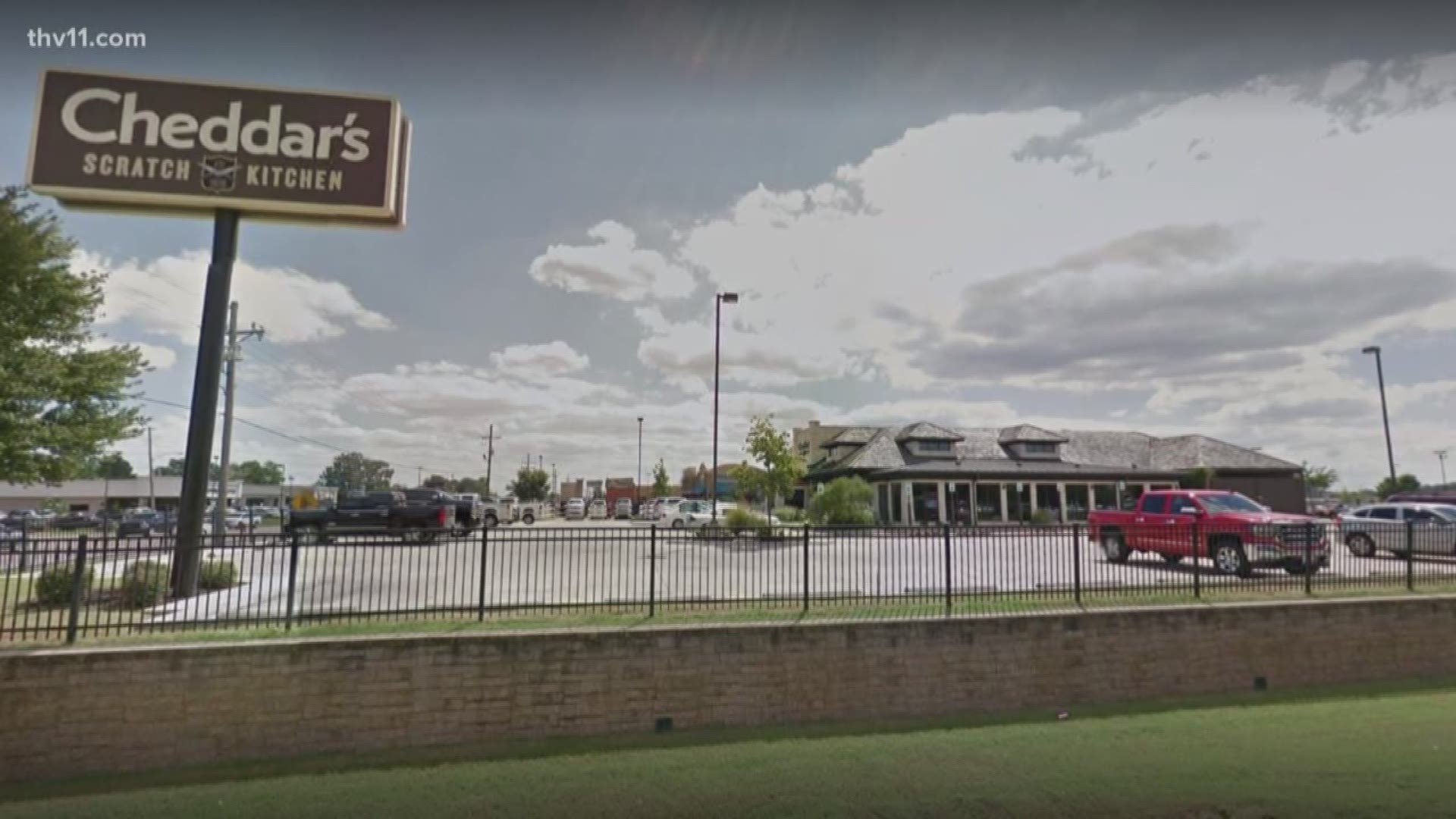JONESBORO, Ark. — Northeast Arkansas continues to see new infections as part of an ongoing hepatitis A outbreak.
The Arkansas Department of Health (ADH) is warning people about a possible hep A exposure after an employee of Cheddar’s Scratch Kitchen in Jonesboro tested positive for the virus.
Anyone who ate at the Cheddar’s restaurant on Stadium Blvd., Jonesboro, Ark. on Dec. 22-23 should seek care immediately if they develop symptoms of the disease.
Typical symptoms of hep A include fever, fatigue, loss of appetite, nausea, vomiting, abdominal pain, dark urine, clay-colored bowel movements, joint pain, or jaundice (yellowing of the skin or eyes). It can range in severity from a mild illness lasting a few weeks to a severe illness lasting several months. Anyone experiencing these symptoms should seek care immediately.
Vaccination within two weeks of exposure may prevent infection.
The ADH learned of this exposure after the two-week interval had elapsed, so there is not a vaccination clinic scheduled. However, customers of the restaurant who ate there on those dates, and anyone who is at a high risk of getting hep A, can still get the vaccination. Anyone who would like to get the hep A vaccine can contact the Craighead Co. Local Health Unit at 870-933-4585.
Risk of getting hep A in a food service setting is low. Restaurants must follow ADH protocols for handwashing and glove use, and employees are not to return to work until they are no longer sick. Hep A is being spread in this outbreak primarily through close contacts in the community, not through eating at restaurants.
Since February, 250 cases of hep A have been reported as part of an outbreak in Northeast Arkansas, including two deaths. Greene, Craighead, and Clay counties have had the most cases, although there have been cases in Arkansas, Cleburne, Cross, Independence, Jackson, Lawrence, Lee, Logan, Mississippi, Monroe, Phillips, Poinsett, Randolph, Sharp and White counties.
High priority groups for getting the hep A vaccine include:
- Anyone who has had close contact with someone who has hep A
- Food workers
- People who use drugs, whether injected or not
- People experiencing homelessness, transient, or unstable housing
- People who have been recently incarcerated
- People who have been diagnosed with hepatitis B or C
The hep A vaccine is safe and effective. Hep A is a contagious liver disease that results from infection with the hep A virus, which is a different virus from the viruses that cause hep B or hep C. It is usually spread when a person ingests tiny amounts of fecal matter from contact with objects, food or drinks contaminated by the feces (stool) of an infected person.
A person can transmit the virus to others up to two weeks before and one week after symptoms appear. If infected, most people will develop symptoms three to four weeks after exposure; however, the virus can cause illness anytime from two to seven weeks after exposure. Many people, especially children, may have no symptoms. Almost all people who get hep A recover completely and do not have any lasting liver damage, although they may feel sick for months.
Older people typically have more severe symptoms. Other risk factors for having more severe symptoms of hep A include having other infections or chronic diseases like hep B or hep C, HIV/AIDS, or diabetes. Up to one in three adults are typically hospitalized. Death due to hep A is rare, but is more likely in patients with other liver diseases (like hep B or hep C).
For more information about hep A and updated information about the outbreak in Arkansas, please visit the Arkansas Department of Health website.

